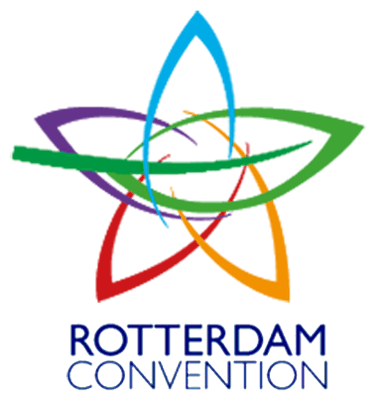The highest-level Rotterdam Convention body will convene in May to discuss the future of the Prior Informed Consent procedure.
The Convention’s Prior Informed Consent (PIC) procedure for hazardous chemicals and pesticides ensures that countries, particularly low-income countries and those with transitioning economies, have a right to know about hazardous substances that enter their country. The requirement of exporting countries to seek the prior informed consent of importing countries before shipping listed hazardous substances provides critical control in the global movement of hazardous substances.
The Rotterdam Convention is a crucial tool in our global health and safety framework. It seeks to protect human health and the environment from potential harm from the use and international trade of hazardous chemicals and pesticides.
However, the Convention is at a critical juncture. A small group of parties continues to block the listing of highly hazardous substances. The ‘consensus’ requirement for listing substances, initially introduced to foster cooperation, has instead evolved into a veto mechanism that threatens the viability of the Convention. This tactic, which has evolved over many years, often only for a particular party’s own economic self-interest, is undermining the science-based work of the Chemical Review Committee which has determined that these substances meet the criteria for listing. These actions deny the rest of the world the right to know about the hazardous substances that are being shipped to their country and harming their people and the environment.
Blocking highly hazardous substances harms low-income countries the most. Countries that lack both the ability to determine the risks associated with hazardous substances and the capacity to regulate and manage them suffer disproportionately.
- The substance that has been blocked the longest is chrysotile asbestos. Banned in the Global North and Australia, asbestos is responsible for the deaths of more than 209,000 workers every year. It is recognised as the cause of over half of all occupational cancers. With over 1 million tonnes of asbestos consumed and traded globally, and with nearly all exported asbestos now shipped to the Global South, we are likely to see tens of millions of people die from asbestos-related diseases for generations to come.
- Pesticides make up the overwhelming majority of listed and blocked substances in the Rotterdam Convention. Pesticides can be highly hazardous to human health. The varying ability of countries to manage and control these risks results in an estimated 350 million workers suffering from unintentional acute pesticide poisoning. With greater use of highly hazardous pesticides, such as paraquat, and a lesser ability to control these risks, workers in regions such as Asia, Africa, and South America are also disproportionately impacted.
A solution to the impasse
A proposed amendment to solve this problem has been put forward by Switzerland, Australia, Mali and co-sponsored by several other countries. It will be voted on at the Conference of Parties (COP11) in May by the convention Parties present at that meeting.
The amendments to be considered at COP11 offer a new solution to improve the effectiveness of the Convention that builds on the work undertaken by Parties to date, whilst protecting the consensus principle at its core. In summary the amendments proposed will, if approved:
- Establisha new annex (Annex VIII) where chemicals that have been found by the Chemical Review Committee to meet the criteria for inclusion in Annex III, but for which the COP is unable to agree by consensus to list,are able to be listed. These chemicals must receive the support of a three-quarters majority vote to list in the new Annex VIII.
- For chemicals listed in the new Annex VIII, the prior informed consent procedure would also apply, but with the importantnew modification that an explicit consent will be required.
 The explicit consent requirement for an Annex VIII listing is a significant new element. This means that the procedures for chemicals listed in the new Annex VIII will be stricter than in the case of Annex III. This requirement will strengthen the Convention and preserve Annex III and its listing procedures.
The explicit consent requirement for an Annex VIII listing is a significant new element. This means that the procedures for chemicals listed in the new Annex VIII will be stricter than in the case of Annex III. This requirement will strengthen the Convention and preserve Annex III and its listing procedures.
For the Convention to continue to serve its purpose as a critical information-sharing tool it must be modernised. The rigorous listing process, including consensus where possible, must be preserved but solutions need to be found to the blocking tactics of a small number of conflicted Parties.
At COP11 this year, there is now a real chance to solve this problem, stop the misuse of the consensus provisions and help modernise the Convention.

